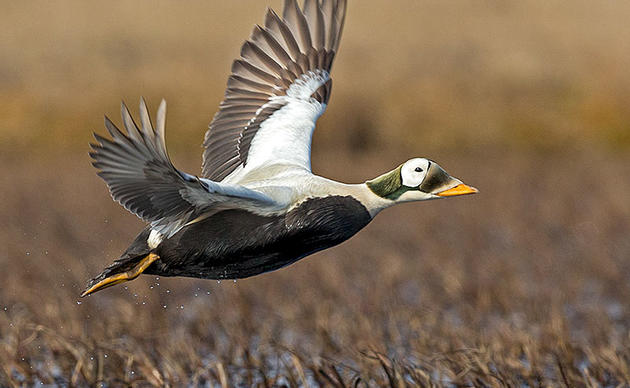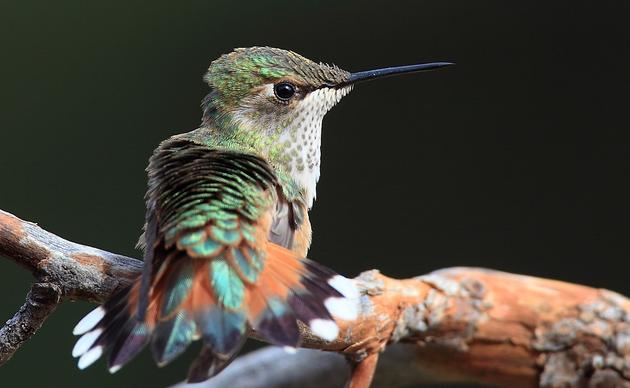TONGASS NATIONAL FOREST, ALASKA - More than 175,000 comments from throughout Alaska and across the country were submitted to the U.S. Department of Agriculture and U.S. Forest Service calling for the restoration of Roadless Rule protections on the Tongass National Forest after the public comment period closed on January 24, 2022. The organizations in favor of restoring the Roadless Rule protections released the following statement regarding the comment submission and the conclusion of the first step of the Biden administration’s new Roadless rulemaking process:
“The Roadless Rule is one of our nation’s premier conservation accomplishments, protecting almost 60 million acres of treasured national forests and intact watersheds. Preserving roadless areas is critical for hunting and fishing. In Southeast Alaska, these activities support cultural traditions and a subsistence lifestyle for many Indigenous communities and protecting them means protecting resources and a way of life for future generations.
Restoring Roadless protections on the Tongass will preserve special places that Alaska Native communities consider sacred. It will support outdoor recreation and tourism industries that thrive when forests are valued for their many ecological benefits. It will set aside cherished places that millions of Americans visit for outdoor recreation and wildlife viewing. And it will help to mitigate the growing impacts of our dual climate and biodiversity crises by preserving a natural climate solution that benefits communities around the globe and protecting imperiled species that rely upon Roadless areas for survival.
The previous administration chose to gut longstanding protections for our nation’s largest national forest, siding with political and industry interests over the voices of local tribal and city governments, business and recreation groups, and hundreds of thousands of Americans that asked repeatedly for Tongass roadless protections to remain in place. As a coalition, we commend President Biden and Secretary Vilsack for taking steps to restore the faith and trust of all those who recognize that industrial-scale, old-growth logging is a relic of the past in Southeast Alaska. And we look forward to additional upcoming public processes and working with the administration to make sure the diverse constituencies of the Tongass are heard and that America’s largest national forest and one of the largest remaining temperate rainforests in the world remains intact.”
Background:
In addition to the comments submitted to the Biden administration re: the current rulemaking, feedback submitted to the U.S. Forest Service on the rule finalized by the Trump administration that ultimately stripped roadless protections — comments from both inside and outside of Alaska — overwhelmingly supported keeping the Roadless Rule in place in the Tongass:
• 96% of unique public comments received by the Forest Service opposed lifting roadless protections.
• Testimony given at public meetings and 18 different subsistence hearings in Southeast Alaska saw a majority of local residents do in fact support keeping the Roadless Rule in place.
• Six Southeast Alaska tribes and six Southeast Alaska city councils[i] passed resolutions opposing the rollback, and nine Alaska Native tribes petitioned the USDA directly, expressing their frustration with the Trump administration's failure to listen to Tribes during the Roadless Rulemaking process and asking the agency to create a separate rule protecting traditional Tribal homelands.
• The National Congress of American Indians passed a resolution requested by the Affiliated Tribes of Northwest Indians and Southeast Alaska Tribes calling for the reinstatement of Roadless Rule protections for the Tongass National Forest.
• A large coalition of Southeast Alaska Native Tribes and communities, small businesses and conservation organizations sued the Trump administration over exempting the Tongass National Forest from the federal Roadless Rule.
• The broad-based opposition also included the Outdoor Alliance and The Conservation Alliance, representing outdoor recreationists and some of the country’s largest outdoor retail and recreation businesses.
[i] City of Skagway, City of Sitka, Community Association of Elfin Cove, Pelican City, City of Tenakee Springs, City of Gustavus, Organized Village of Kake, Organized Village of Saxman, Craig Tribal Association, Organized Village of Kasaan, Ketchikan Indian Community, Skagway Traditional Council.
Climate Change:
No other national forest comes close to the total carbon stocks on the Tongass National Forest, which represent 8% of total carbon stores on all U.S. forests, or approximately one-quarter of total carbon on all national forests. Preserving old-growth forests is critical to keeping most of the Tongass carbon in the forest and stored in a relatively stable condition instead of the atmosphere.
Media Contacts:
Katrina Peavey, Audubon Alaska, 907-433-5300, katrina.peavey@audubon.org
Matt Smelser, National Audubon Society, 512-739-9635, matt.smelser@audubon.org
About Audubon
The National Audubon Society protects birds and the places they need, today and tomorrow. Audubon works throughout the Americas using science, advocacy, education, and on-the-ground conservation. State programs, nature centers, chapters, and partners give Audubon an unparalleled wingspan that reaches millions of people each year to inform, inspire, and unite diverse communities in conservation action. A nonprofit conservation organization since 1905, Audubon believes in a world in which people and wildlife thrive. Learn more at www.audubon.org and on Facebook, Twitter and Instagram @audubonsociety.
Since 1977, Audubon Alaska has been conserving the spectacular natural ecosystems of Alaska for people, birds, and other wildlife. Audubon Alaska uses science to identify conservation priorities and support conservation actions and policies, with an emphasis on public lands and waters. Audubon Alaska is a state office of the National Audubon Society. Learn more at ak.audubon.org.



